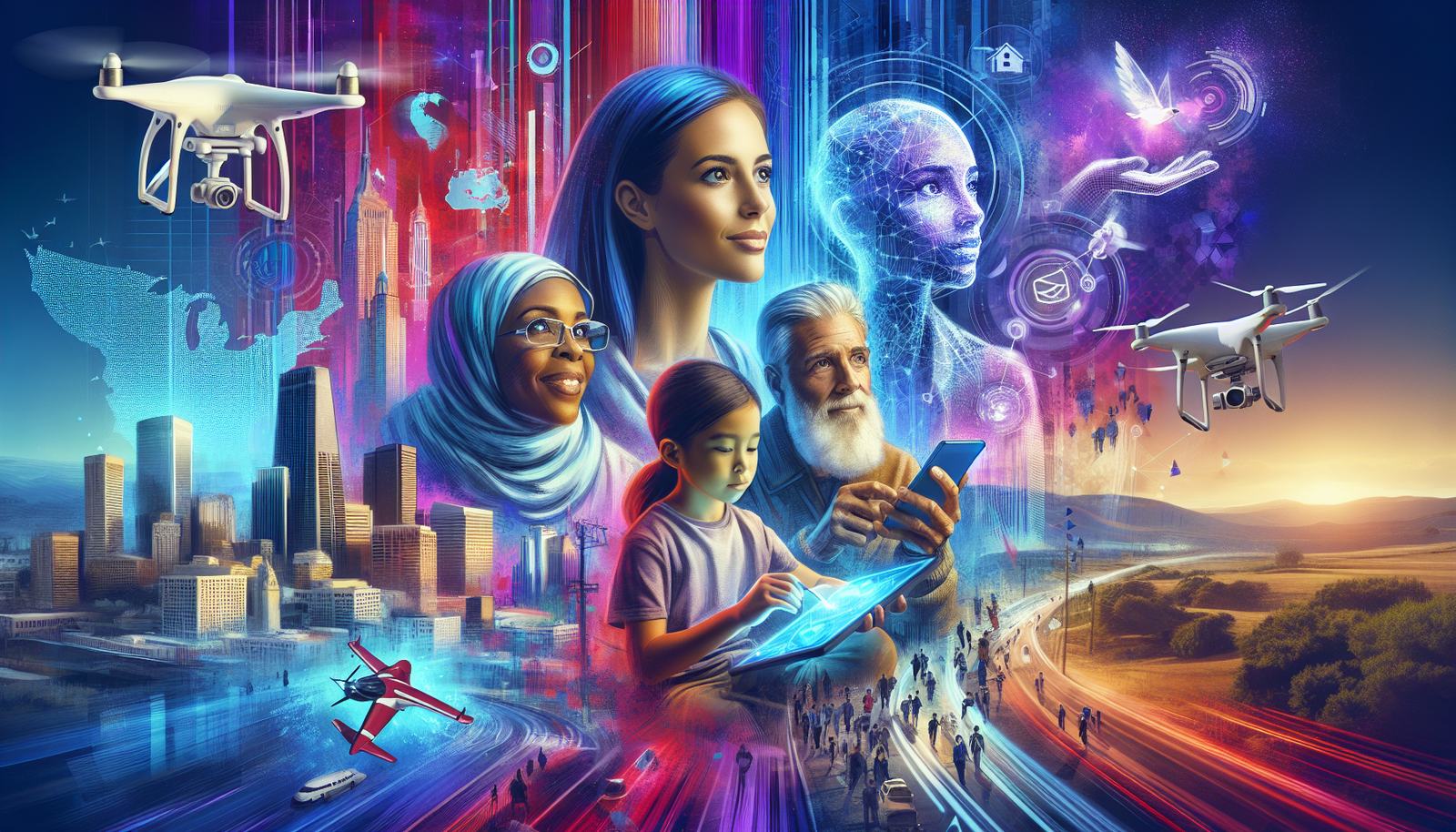Artificial intelligence is asserting itself as a *transformational agent*, redefining the trajectory of the United States in an ever-evolving world. *A strategic upheaval* looms as this technology becomes a catalyst for economic, political, and social reforms. *Security and ethical issues* emerge, creating a dynamic where progress must be accompanied by rigorous vigilance. AI, far from being a mere convenience, is becoming a technological sovereign, capable of reshaping the geopolitical landscape.
AI as a vector for economic transformation
The rise of artificial intelligence (AI) represents an unprecedented turning point for the American economy. Investments in this sector could reach one trillion dollars by 2025. This dynamic attracts technology companies while stimulating innovation in various sectors, ranging from healthcare to education.
A new paradigm in education
Schools, such as those in Arizona, are adopting AI as a teaching tool. In September 2025, an AI will oversee instruction in a school in Phoenix. This change reveals untapped potential for personalized learning, helping to reduce educational disparities among students.
The United States, pioneers in AI regulation
In the face of the rapid advancement of AI, the White House is taking proactive measures. A working group composed of lawmakers is considering the creation of a strict regulatory framework. The aim is to protect citizens and prevent potential abuses of such technology.
Technological leadership and military intelligence
Brad Smith’s report highlights that artificial intelligence gives the United States a priceless opportunity to strengthen its position as a global technological leader. In the military sector, companies are exploring the implementation of AI capabilities to optimize defense and attack strategies, thereby redefining the national security landscape.
Risks and socio-economic challenges
The effects of AI are not limited to benefits. Studies highlight associated risks, such as the exacerbation of socio-economic inequalities. Technologies like machine learning could further widen the gap between different social classes, as access to these tools remains conditioned by financial resources.
Notable advances and international initiatives
On the global stage, the United States is among the champions of AI, but other countries, such as Canada and France, are also developing promising initiatives. For instance, France positions itself as a bastion of AI, thanks to significant investments in research and development. Collaboration between nations is strengthening in this sector, promoting direct innovation.
The future shaped by AI
The evolution of AI seems conducive to a future where businesses must adapt to this new reality. Giants like Nvidia continue to fuel the debate with their announcements at major technology events, such as the CES 2025. These innovations mark a crucial step in the implementation of AI capabilities in the industry.
Pursuit of equity and transparency
Ethical concerns regarding the use of AI dominate current discussions. A call for ethical regulation is emerging to ensure that this technology benefits society as a whole. The existence of biases in algorithms highlights the need for increased vigilance regarding the integrity of the data used.
Economic perspectives and job opportunities
Opportunities related to AI are multiplying, both in the job market and in the general economic environment. Emerging sectors require specific skills in artificial intelligence, thereby opening a potential reservoir of jobs for young graduates. These developments are steering university programs towards training and research in this field.
FAQs on AI propelling the United States toward an unexpected new path
How is artificial intelligence changing the economic landscape in the United States?
AI is transforming the American economy by integrating automation across various sectors, leading to increased efficiency, cost savings, and the creation of new emerging industries.
What are the main sectors affected by AI in the United States?
The most affected sectors include technology, healthcare, financial services, education, and manufacturing, where AI is used to optimize operations and improve decision-making.
What are the implications of AI on employment in the United States?
While AI creates new jobs, it may also replace certain positions, thus requiring professional retraining for workers whose skills become obsolete.
What ethical challenges does the rise of AI pose in the United States?
Ethical challenges include data privacy, security, algorithmic bias, and accountability in automated decision-making, leading to debates on AI regulation.
How does AI contribute to the competitiveness of American companies in the global market?
The integration of AI enables American companies to enhance their productivity and innovation, making them more competitive against other nations that are also developing advanced technologies.
What are the social impacts of artificial intelligence on American citizens?
AI influences lifestyles, particularly through social media, education, and healthcare, facilitating access to information and improving certain services, while raising concerns about technological dependence.
How are American schools integrating AI into the educational system?
Schools are experimenting with AI-based solutions, such as intelligent tutors and personalized learning platforms, to enhance the learning experience and tailor teaching to individual student needs.
What investments are planned for the development of AI in the United States?
Forecasts indicate investments of around one trillion dollars in AI over the coming years, focusing on research, innovation, and the enhancement of technological infrastructures.






